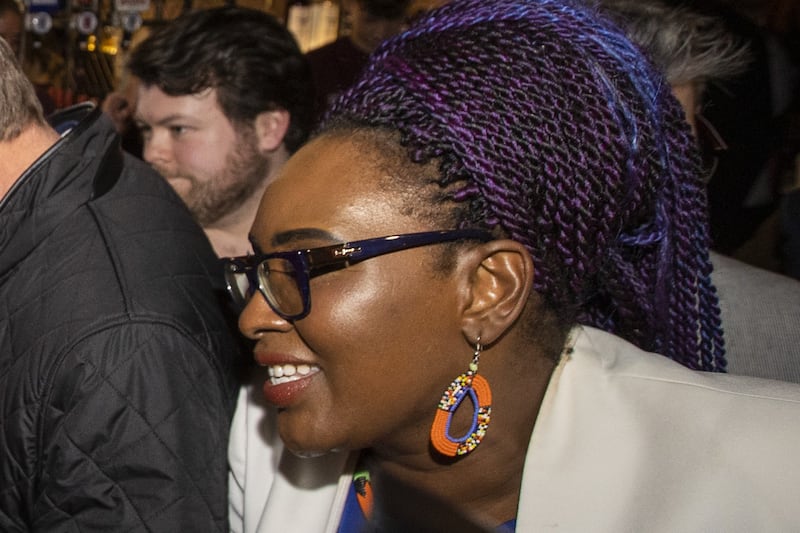UNIONISTS have nothing to fear from a conversation about a united Ireland based on “persuasion and consent”, SDLP leader Colum Eastwood has said.
The Foyle MLA called for the re-establishment of the New Ireland Forum ahead of any border poll, arguing that such a move would “build a broad coalition for change”.
Mr Eastwood was speaking to around 300 SDLP delegates and representatives at the party’s annual conference in Belfast on Saturday.
He called for the reconvening of the nationalist forum that in the 1980s laid the groundwork for the Anglo-Irish and Good Friday agreements.
The SDLP leader said there was little point in challenging others if the party and broader nationalism did not challenge itself.
He said the status of nationalists in the north had changed since the civil rights movement was formed in the late 1960s and they were no longer second class citizens.
“I for one am tired of hearing that argument,” he said.
“We diminish ourselves by its repetition and we diminish the progress which has been secured by previous generations.”
Mr Eastwood said the UK’s vote to leave the EU had transformed the political landscape, creating a new impetus for Irish reunification.
He said a new Ireland needed an all-island health service, free at the point of delivery, and should also be energy self-sufficient by 2050.
In calling for the reestablishment of the New Ireland Forum, he said no single party could shape a vision of unification on its own.
“The New Ireland Forum is the best way to produce that blueprint and that plan – no referendum should be called until that work is done,” he said.
Mr Eastwood acknowledged that the idea of unification would send some of its opponents “to the hills” but said unionism was not defined “by the politics of Arlene Foster”, who said she would likely leave in the event of a united Ireland.
“Too often uniformity is painted on to this society where none exists,” he said.
“There are many within the unionist community who are willing to engage and who are willing to explore new possibilities.”
He added that the SDLP wanted Northern Ireland to work but appealed to unionism to engage with nationalism rather than “stay silent on it”.
The SDLP leader did not directly address speculation about his party merging with Fianna Fáil but said that “in terms of re-alignment”, its primary purpose would be to realise John Hume’s vision of an agreed Ireland.
“I have been clear, we are up for those challenging conversations and we are up for the challenge of changing – in the time ahead, we will be true to ourselves and true to each other,” he said.
“But let me also be clear, those values, that politics and that movement for reconciliation will always, always endure – none of those values are leaving any stage.”
Mr Eastwood also warned that 20 years on from the signing of the Good Friday Agreement, politics was “in a very bad way”.
He said the Irish and British governments were guarantors of the agreement and they need to “intervene actively and positively” to break the current impasse.
“Since the collapse of the talks I have been calling on the Irish and British governments, as part of the intergovernmental conference, to agree a package of legislation,” he said.
“I believe that package should include much of February’s draft accommodation.
There would be legislation for acht na Gaeilge and an Ulster Scots act.”
He also called for legislation at Westminster and in the Dáil to establish and resource legacy bodies and to release money for Troubles inquests.
Mr Eastwood also urged the two governments to reform Stormont’s petition of concern, creating the potential to deliver marriage equality through the assembly.








